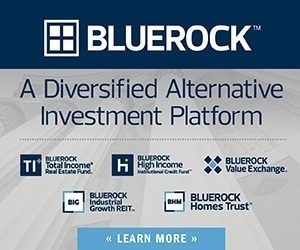Triton Pacific’s Quick Serve Restaurants Offer Tasty Resilience

December 16, 2020 | James Sprow | Blue Vault
We recently spoke with Brian Buehler, President and CEO at Triton Pacific Securities, about the performance of their Quick Service Restaurant (“QSR”) portfolio in the midst of the COVID-19 pandemic. Brian has produced a series of White Papers for their website that give great insight into their strategy for navigating the pandemic and producing long-term value for investors. His latest White Paper, entitled “Are You Prepared for the Second Wave?” draws parallels between the current crisis and the Spanish Flu pandemic in 1918 and 1919. He points out how that earlier epidemic came in three waves and eventually ended as the world’s population achieved herd immunity. Whether or not the parallels prove prescient to today’s challenges (a vaccine for the Spanish Flu was never developed), Buehler points out that the Triton Pacific QSR portfolio of Burger King and Pizza Hut restaurants has weathered the storm rather well.
In this latest White Paper, Buehler asks advisors, “Are your clients’ portfolios prepared for a second wave? There can be some interesting dialogues that can take place between clients and their advisors when they read this White Paper.” In his previous White Papers that are available on the Triton Pacific website, he shows how private equity has outperformed other asset classes over long periods and in different economic environments.
Operating in the QSR Asset Class
What makes QSR unique as an asset class? According to Buehler, “The bottom line is people need to eat.” The numbers support that simple thesis. It is estimated that pre-COVID 85 million Americans were frequenting fast food restaurants every day. During the pandemic, that number has increased to over 100 million per day. The full-service dining restaurants are either partially or totally closed. Despite the creativity that full-service restaurants have shown, “Nobody’s going to want to eat a $40 steak in the snow.” Buehler questions if some will have the balance sheets to survive the winter. But QSRs are “ripe to benefit from the next wave of COVID. We want to be on the benefactor side of this next wave, and we believe QSR is definitely positioned to do so.”
Triton Pacific is unique in their focus on the operations side of the QSR business. Their restaurant executive team, operating under the brand Tasty Restaurant Group (“TRG”) is very experienced in the operations of fast food franchises. Tasty purchases restaurants from franchise owners who are ready to monetize their investments. Sometimes their owners are the first generation whose children don’t want to be in the restaurant business. When they are ready to sell, Triton Pacific’s Tasty team is often favored by the franchisors like Burger King and Pizza Hut to purchase the stores and optimize their management. Tasty currently has a portfolio of 190 QSRs, Burger Kings and Pizza Huts, and they are currently on track to add 37 more Pizza Huts and after that 16 more Pizza Huts. They have operations within ten states and 30 cities currently, and when they close on those programs they will have more states and more cities.
From the private equity investor’s perspective, the QSR sector is a very relatable story. They can readily understand the value proposition because they have relationships with fast food restaurants. Buehler says their slogan is “Invest Where America Eats.” If the client has a stomach, they’ve probably used fast food in the last week. They may say, “I wish I owned one of these.” Through Triton’s Tasty program, investors have a way to passively participate in the QSR sector.
Creating Value in the QSR Segment
Buehler says you can create value in a number of different ways. At Triton they are able to do that operationally. While other alternative investment vehicles focus more on buying and leasing real estate, Triton is more focused on the operational side of the business. They are both an aggregator and an operator of their portfolio, or as Buehler states “We are a Vertically Integrated Operating Company (“VIOC”) which we believe creates more efficiencies operationally and aligns us with the investors too.”
From the onset, Triton’s Tasty management decided to be a multi-brand operator. They have distinct brands that they’ve been forming relationships with. They will end up with a series of Tasty programs operating with five or six brands in the QSR segment. Within the burger category, Burger King is the one that had the significant growth opportunities. Within the pizza segment, Pizza Hut had the most potential for sustainable income. Dunkin is really the only franchise available in the drinks and snack category.
Inspire Brands Purchase of Dunkin
A very recent example of how value has been created in the QSR sector is the Inspire Brands purchase of Dunkin, paying a 20% premium on the closing price of Dunkin. Dunkin has been around for decades and over the last ten years, they have been working with private equity firms in aggregating franchisee-owned stores. Inspire Brands is rewarding the aggregator for the work they have put into improving the operations of the Dunkin portfolio. According to Buehler, “COVID has put a huge magnifying glass on certain essential businesses that have been performing tremendously well, and that’s Tasty and Inspire brands.” Triton Pacific is also aggregating a portfolio of QSRs and putting in the work to get them into the top quartile in efficiency and in so doing they are getting it ready for an asset sale in a few years. The Inspire Dunkin purchase gives Tasty followers confidence that they should be able to ask a premium in their exit strategy because it confirms the roadmap for their strategy.
Delivering Cash Flow and Growth
Advisors go into alternative investments for two reasons: One is for cash flow and two is for growth. If cash flow gets challenged, where is the growth? Buehler is very pleased with what they’ve built at Triton Pacific because they can demonstrate very strong cash flows and create a premium on exit due to their operational efficiencies and aggregation.
Buehler says, with regard to their offerings, “A couple years ago I made a lot of calls that started with the phrase ‘Trust me’. Fast forward to today and we don’t have to say ‘trust me’, you look at our financials and everything you want to look at and we’re executing wonderfully and we’re planning to keep focused on QSR again and again. So if you missed out on the first one or you wanted to see how the first one was going, you did just fine. As long as the math works, we’ll continue doing what we’re doing. We believe we have about seven to eight years of aggregation opportunities within this space.”
Brian says, “This is a relatable story. You don’t have to go through layers and layers of financials to get someone to understand it. If it’s familiar to the advisor, it’s probably familiar to the client. Through Triton, advisors, and investors have the opportunity to participate in the QSR sector. If America’s eating here, and it is doing well during COVID, and it did well during the great recession, maybe it’s something they should contemplate as an investment. And what’s really interesting about it is that it’s not a real estate allocation play, it’s an operating business private equity allocation play and Triton is the only QSR offering within the IBD channel.”
With Triton’s initial offering of $150 million almost fully subscribed and their second offering of $200 million now launched, Triton wants to lead the charge in democratizing private equity, and they believe they can put together a series of QSR offerings in the IBD and RIA channels. Triton Pacific, founded in 2001, is a private equity firm offering income and growth investment programs for accredited investors.











